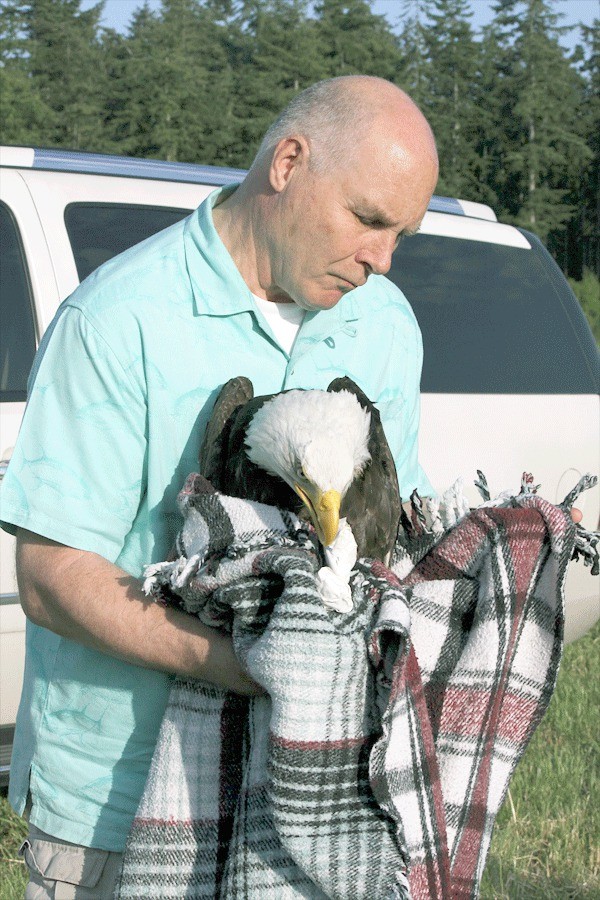By Dr. Eric Anderson
Whidbey Island Wildlife Center
I would like to thank the Deception Pass Park staff and the volunteers who helped bring the injured bald eagle to Wildlife Care Clinic on May 26, 2011. Without your help and determination, many of the wildlife on Whidbey Island would go uncared for.
As background, The Wildlife Care Center is nonprofit organization that serves northwest Washington and Whidbey Island and Fidalgo Island in particular. For over 30 years, we have provided the highest standards of veterinary care to injured and diseased wildlife on Whidbey Island.
Over the years we have treated thousands of wildlife cases, hundreds of which are bald eagles who come to us poisoned, shot, diseased, aged, and injured. While we are licensed by the US Fish and Wildlife Service and the Washington State Department of Wildlife, we do not receive a penny of support from them.
The direction that we receive from both the state and the federal government is that if an animal is presented to us with injuries that in our considered judgment prevent them to be able to return to the wilds then it should be humanely euthanized. Myself, Dr. Syring and Dr. Brazle and the rest of the staff give of their time and expertise through the generosity of Best Friends Veterinary Center. Best Friends is not paid a cent by any tax dollars. Since May 26, we have treated, cared for and released two additional eagles.
In the case of the May 26 eagle that came from Deception Pass it sustained horrendous injury to the elbow joint. The wings are of course the most critical part of a bird’s ability to survive in the wild. On careful examination by both palpation and the use of digital radiographs it was determined that the vital ligaments that give critical support to the powerful wings were torn, allowing for the wing to be dislocated. Frankly, we would have been happier to see a fracture. Fracture repair can be simple in comparison to severe ligament trauma in a raptor. What we found was not a simple dislocation that could be set back into place and bandaged, but very severe muscle and ligament damage which would inhibit healing, cause severe and chronic pain, and would almost certainly render the eagle unable to fly for the rest of its life.
Once the severe dislocation was confirmed, a decision had to be made about the prognosis for this bird to return to flight and be releasable into the wild. We determined that, even with surgery and rehabilitation, the bird would likely have remained crippled and in some degree of pain for the remainder of its life. It is hard for everyone, especially our rescue staff, when a case has such a sad outcome. We have to take the tough responsibility to first prevent animal suffering and admit when attempts at rehabilitation would be more cruel than kind. We do not make this decision lightly, but when the choice is between our discomfort and a lifetime of suffering for an animal, we make the appropriate medical decision with a clear conscience.
We know that the thought of living as an educational or display animal seems comforting to many people. Please consider that their bird would be a wild animal with a painful, crippling injury, living in confinement for the rest of its life. Our ability to alleviate pain and suffering takes precedence over our desire to keep these birds alive for our own emotional or aesthetic needs.
Again, we appreciate the concern and volunteer efforts of everyone who helped with this case. We are happy to report that a young bald eagle that was in our care for the last week has recently been released.
Eric Anderson, DVM
Chief of Staff
Best Friend’s Veterinary Center
and The Wildlife Care Center



